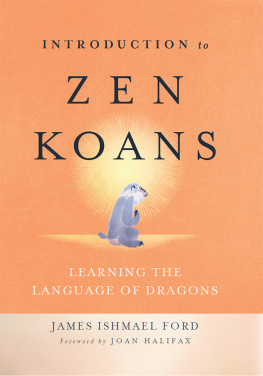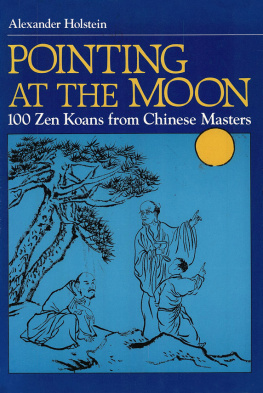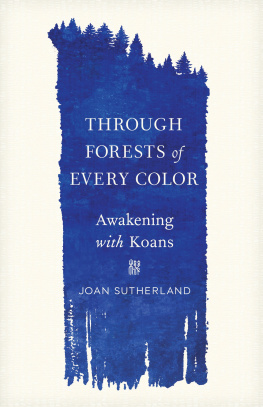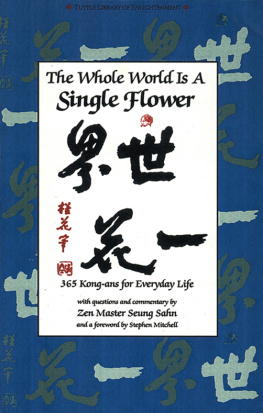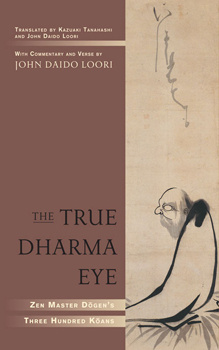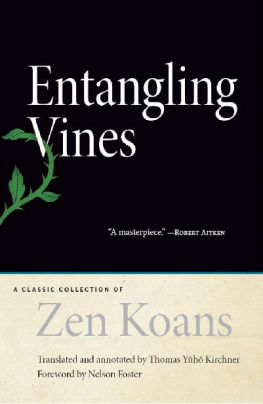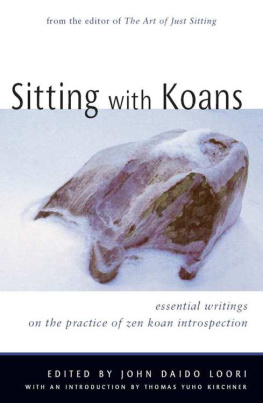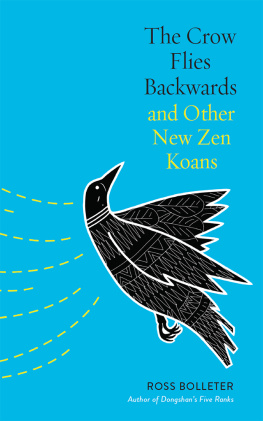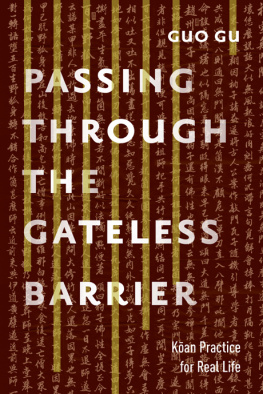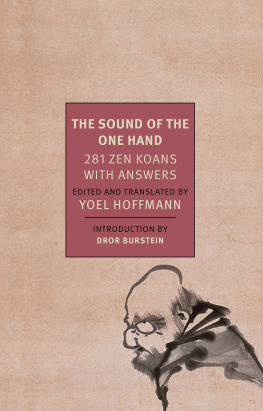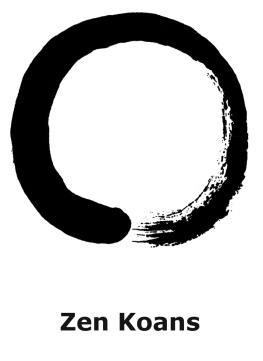
About the Author
JAMES ISHMAEL FORD, Roshi, has been a Zen practitioner for nearly fifty years. He is ordained both as a Soto Zen Buddhist priest and as a koan teacher in the Harada-Yasutani tradition. He served on the membership committee of the American Zen Teachers Association for ten years, and a three-year term on the Board of Directors of the Soto Zen Buddhist Association. James was a founding member of Boundless Way Zen and served as its first abbot. Today he guides Zen sanghas in Long Beach and Costa Mesa, California, and Seattle, Washington. His personal webpage is at http://www.jamesishmaelford.com.
He is also an ordained Unitarian Universalist minister. He is minister-emeritus of the First Unitarian Church of Providence, in Rhode Island. And he is currently affiliated as a community minister with the Unitarian Universalist Church of Long Beach, in California.
He is the author or editor of five books, mostly addressing aspects of Zen history and practice, as well as articles for Buddhadharma, Lions Roar, Tricycle, and the Unitarian Universalist World. He blogs as Monkey Mind, which is hosted by the religion portal Patheos. He lives with his spouse, Jan Seymour-Ford, in Long Beach, California.
Acknowledgments
Elements of this book have seen print before as partially developed thoughts. Some appeared in my previous books, others in my blog Monkey Mind, others as articles in various magazines. Some even in sermons delivered at Unitarian Universalist churches. Im grateful for the opportunity to further reflect and expand on these recurring themes in my life and what I see as themes in the lives of many others.
There are so many people to thank for help along the way, too many to completely list here, but still, some names must be said.
Of course at the heart of the matter are my various official and nearly official teachers, including my first Zen teachers Shunryu Suzuki and Mel Sojun Weitsman; my ordination master Houn Jiyu Kennett; Myozen Delport, who guided my meditation practice into new depths; Jim Wilson, who introduced me to koan introspection; and most of all to John Tarrant, who guided me to the depths of koan introspection; my Dharma siblings David Weinstein, Joan Sutherland, and Daniel Terragno, who helped, pushed, and sometimes dragged me in many different ways along the path.
I particularly owe a great and continuing debt to my fellow teachers at the Boundless Way Zen project, especially Melissa Myozen Blacker, David DaeAn Rynick, and Josh Jiun Bartok, who did double duty as my editor at Wisdom Publications.
And endless thanks to those who have read parts or even all of this manuscript at one stage of its writing or another, and whose comments allowed me to avoid several traps: Florence Caplow, James Cordova, Mary Gates, Desmond Gilna, Gesshin Greenwood, Genjo Marinello, Dana Miller, Wendy Egyoku Nakao, Edward Oberholtzer, Pat Enkyo OHara, Douglas Philips, Dosho Port, Dave Rutschman, Seisen Saunders, Jan Seymour-Ford, Henry Shukman, Stephen Slottow, Dana Veldon, J. Thomas Wardle, Jay Rinsen Weik, Mo Weinhart, and Tetsugan Zummach.
What is useful within these pages owes a great deal to all these people, maybe everything. The mistakes, sadly, are all mine. Some, I have to admit, were made in the face of strong counsel otherwise.
APPENDIX
The Five Styles
Some Example Koans
Chapter 22 discussed Hakuins typology of five styles of koan and cited two examples for each. Here are the texts of those koans.
Hosshin or Dharmakaya Koans, the Koans of Nonduality
Gateless Gate, Case 1: A student of the Way asked Zhaozhou, Does a dog have Buddha nature? Zhaozhou replied, Mu (No).
Sound of the Single Hand: Master Hakuin said, We all know the sound of two hands clapping. What is the sound of the single hand?
Kikan, the Koans of Action Arising Out of the Empty
Gateless Gate, Case 14: The teacher Nanchuan came upon the monks of the eastern and western halls arguing over a cat. He took the cat and held it up with one hand, holding a knife in the other. He said, Anyone! If you can say a word, I will spare this cat. If you cannot, I will kill it. No one spoke, so Nanchuan cut the cat in two. That evening when Zhaozhou returned to the monastery, Nanchuan told him what had happened. Zhaozhou removed a sandal from his foot, balanced it on his head, and walked out of the meeting. Nanchuan muttered, If only he had been there, the cat would have lived.
Gateless Gate, Case 37: A student of the Way asked Zhaozhou, What is the meaning of Bodhidharma coming from the west? Zhaozhou responded, The oak tree in the courtyard.
Gonsen, the Koans of Skillful Use of Words
Blue Cliff Record, Case 6: Yunmen asked his assembly, I dont ask you about before the fifteenth of the month. Say something about after the fifteenth. When no one responded, he said, Every day is a good day.
Gateless Gate, Case 7: A student of the Way asks Zhaozhou, Ive just come to the monastery. Please, guide me. Zhaozhou responds, Have you eaten yet? The student replies, Yes, sir. Zhaozhou says, Wash your bowls. The student awakened.
Nanto, or Difficult Koans
Gateless Gate, Case 38: Wuzu said, It is like an ox who passes through a latticed window. Its horns, its four legs, all pass through. Then he asked, Why cant its tail pass through?
Entangling Vines, Case 162: An old woman supported a monk in a hermitage on her property for twenty years. She had a young girl take him a meal every day. Then one day she told the girl to give him a hug and ask, What do you feel right now? She did and reported back the hermit responded, An old tree on a cold cliff / midwinter no warmth at all. The woman exclaimed, For twenty years Ive housed and fed that fraud. And with that she drove the hermit away and then burned down his hermitage.
This marvelous book opens the treasure house of Zen and yet, happily, does not dispel its mystery. James Ford, an excellent storyteller and longtime Zen practitioner, presents a detailed and beautiful description of the craft of zazen, including just sitting and various forms of breath meditationbut focuses primarily on koan introspection. This book is rich in textual sources and woven throughout with the perspectives of contemporary teachers. Through it, the reader will discover the importance of lineage, the traceless traces of the Zen ancestors, and the places of just sitting and koan practice as paths to awakening, as the great doorways into Zen.
from the foreword by JOAN HALIFAX
James Ishmael Ford sets forth his richly informative account of the history and nature of the Zen koan. He also provides us with a beautifully nuanced account of how to introspect a koan. This is a much-needed bookone that will invite, challenge, and inspire you.
ROSS BOLLETER, author of The Crow Flies Backwards and Other New Zen Koans
An excellent introduction flavored with wisdom and love. Roshi James Ford captures both the broad landscape of Zen training and the subtle confounding intricacies one is likely to encounter.
WENDY EGYOKU NAKAO, abbot of the Zen Center of Los Angeles
James Ford is a natural storytellerand his simple, clear instructions for how to sit lead organically to the explanation-defying essence of Zen.
SHINGE ROKO SHERRY CHAYAT, abbot of the Zen Center of Syracuse
What a delight!
KOSHIN PALEY ELLISON, editor of Awake at the Bedside
Join Wisdoms mailing list and find out what to read next!
Receive the latest news and updates from Wisdom, including new releases and special offers.
Next page
